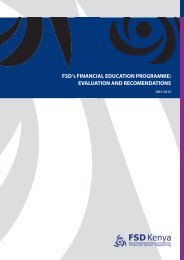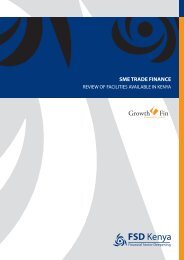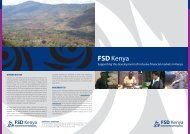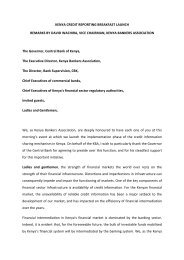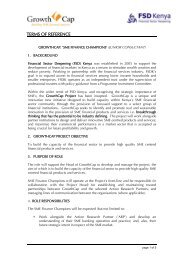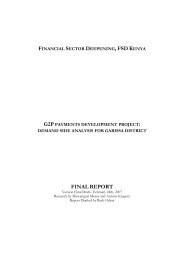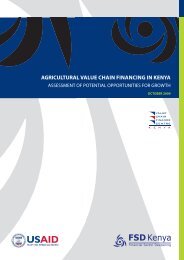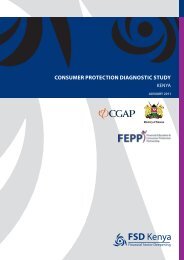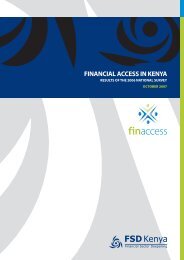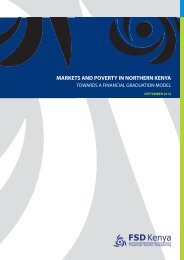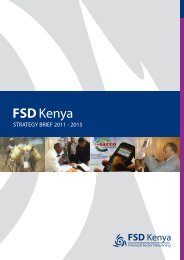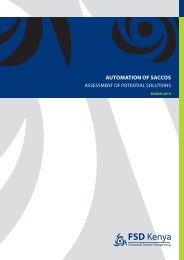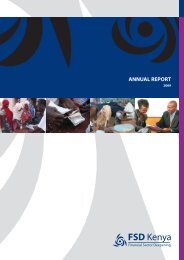MicroSave project completion report - FSD Kenya
MicroSave project completion report - FSD Kenya
MicroSave project completion report - FSD Kenya
Create successful ePaper yourself
Turn your PDF publications into a flip-book with our unique Google optimized e-Paper software.
4 • MICROSAVE PROJECT COMPLETION REPORT<br />
Critical success factors: Several distinctive characteristics<br />
underpin <strong>MicroSave</strong>’s success:<br />
• A demand-side window on the supply-side, putting poor<br />
consumers at the heart of financial sector development by<br />
asking“what do the poor want from financial service markets…<br />
and why aren’t they getting it?”<br />
• Insight, rigour and discipline, balancing a research-driven<br />
approach with on-the-ground practicality.<br />
• An iterative, common sense approach, based on pilot activities<br />
and a learning-by-doing ethos, yielding dividends in terms of<br />
responsiveness and a solid platform for expansion.<br />
• Accessible and localised, seeking local solutions to local<br />
problems.<br />
• Credibility with industry – achieved through insight derived<br />
from research, technical ability and practicality – making strong<br />
partner buy-in possible.<br />
• A “third eye” for industry players, who often struggle to<br />
distinguish between their own short term organisational<br />
interests and a wider perspective on the industry’s future<br />
direction.<br />
CHALLENGES<br />
In view of <strong>MicroSave</strong>’s considerable achievements, any challenges or<br />
weaknesses discussed here are not fundamental, but are salient to a<br />
lesson-learning agenda for other agencies who might seek to build<br />
upon <strong>MicroSave</strong>’s approach:<br />
• The risks of branding <strong>project</strong>s.<br />
• Being close – but not too close – to partners.<br />
• The perils of mission creep.<br />
• Sustainability of non-commercial functions.<br />
LESSONS<br />
<strong>MicroSave</strong> has accumulated considerable achievements and faced<br />
considerable challenges. Important lessons can be derived from this<br />
experience for development agencies seeking to stimulate the<br />
development of markets so that they better serve the poor. These<br />
include:<br />
• A wider financial sector development agenda – moving from<br />
organisations to systems.<br />
• The centrality of good market understanding to effective<br />
intervention.<br />
• Build scope for pilot initiatives and flexibility into intervention<br />
design.<br />
• Interventions need to be guided by a strategy or “pathway” for<br />
wider systemic change.<br />
• The role of agencies as catalysts to facilitate market system<br />
change, not participate in markets directly.<br />
• The importance of a rigorous, transparent approach to<br />
sustainability from the outset.<br />
• Market development requires time, good people and multifaceted<br />
interventions, not necessarily enormous resources.



